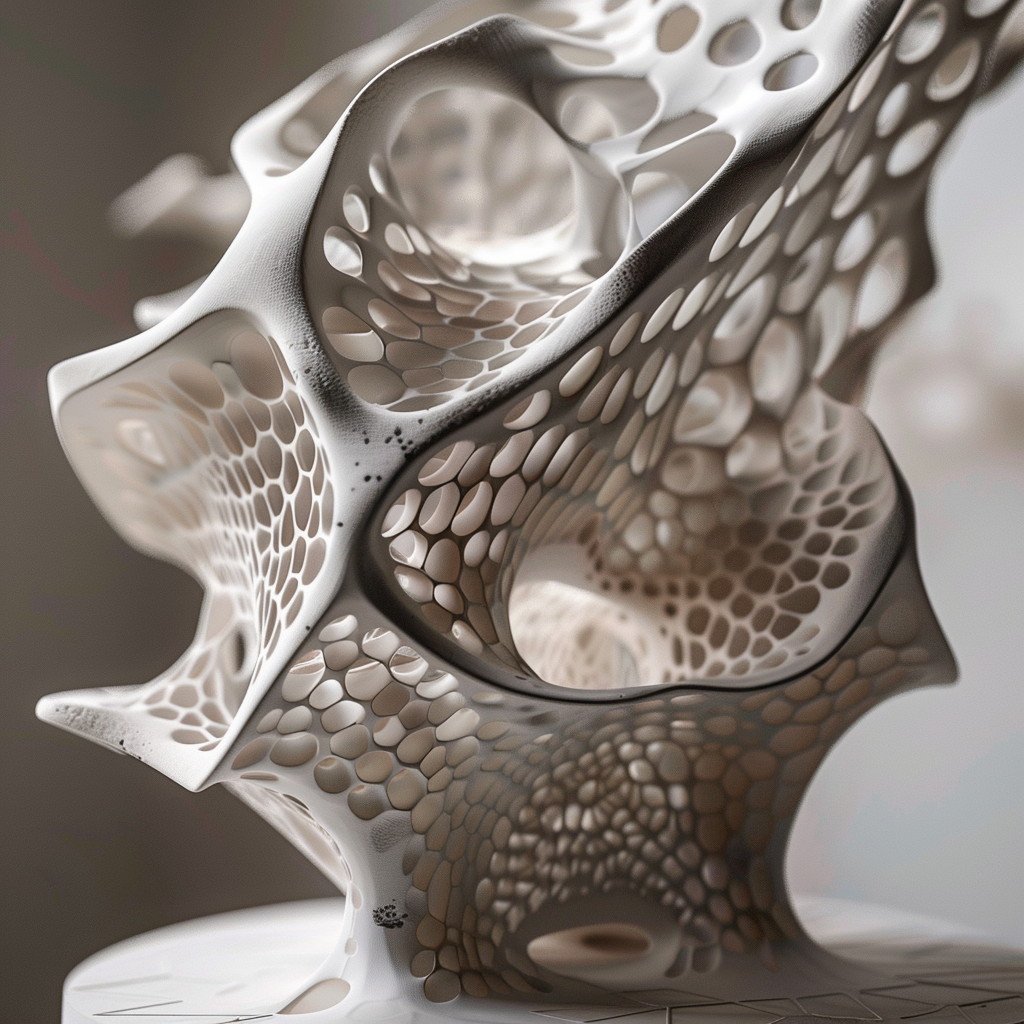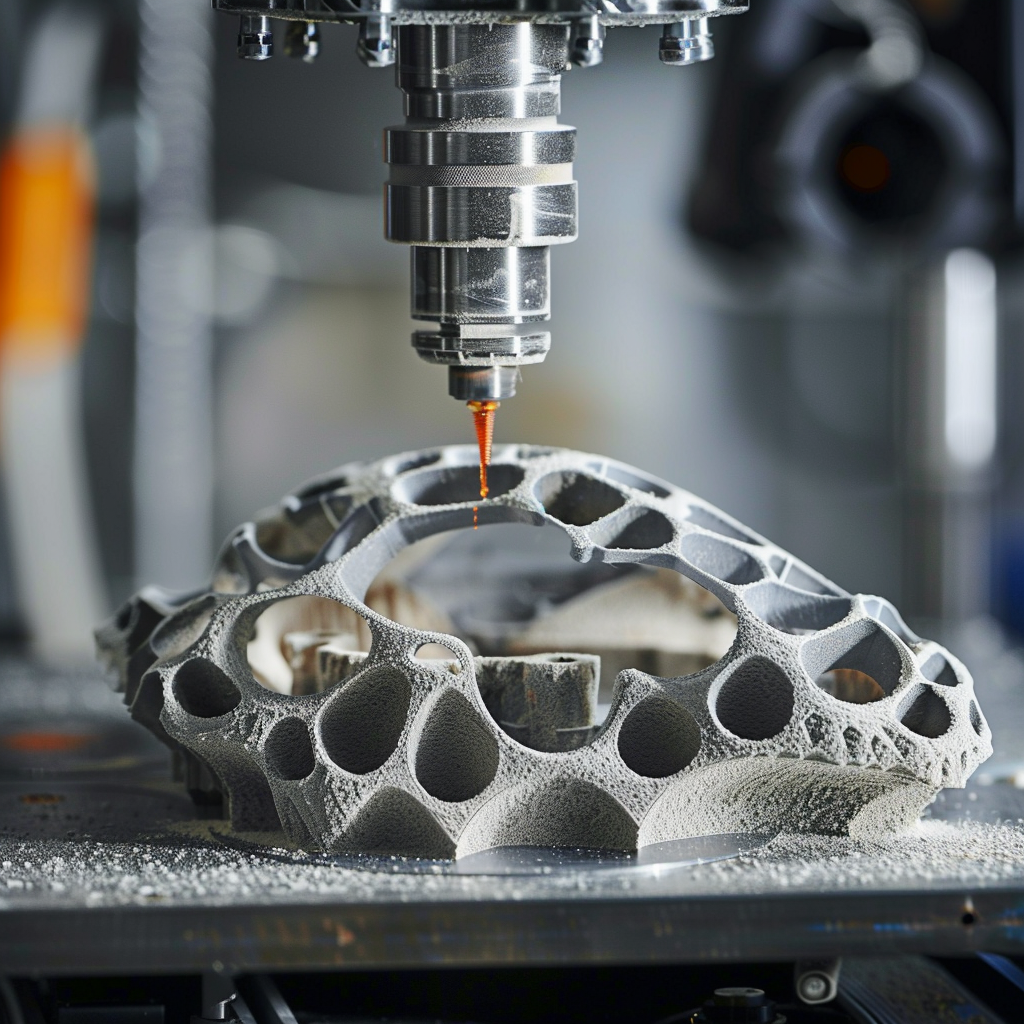
DEEP TECH
A QUICK OVERVIEW
What is Deep Tech?
Deep tech is a term used to describe technology that is based on tangible engineering innovation or scientific advances and discoveries. Deep tech is often characterized by its substantial potential to impact industries and the greater society. It can require extensive research and development, and its implementation can be both high cost and high risk.
Industry 4.0 → The Fourth Industrial Revolution
Industry 4.0, also known as the Fourth Industrial Revolution, refers to the integration of digital technology and physical systems in the industrial sector. It encompasses advancements like the Internet of Things (IoT), artificial intelligence (AI), robotics, and cloud computing. The goal of Industry 4.0 is to create "smart factories" where machines and systems can monitor physical processes, create virtual copies of the physical world, and make decentralized decisions in real time.
Deep tech is responsible for filling in the the tech tree to unlock Industry 4.0 which paves the way for civilization to become multi planetary. This involves deep dives into the following applied sciences in combination with robotics and artificial intelligence.
Geology
Geology is a field of study that focuses on the detailed understanding and analysis of solid matter, including rocks, minerals, geological formations, and the processes by which they change over time. This study could involve techniques such as geochronology, structural geology, geophysics, geochemistry, and sedimentology, among others. Applications of advanced geology can be found in various sectors such as natural resource exploration, environmental consulting, hazard assessment, and infrastructure development.
Geology will play a critical role in analyzing galactic surfaces and materials for mining, refining and construction.
Biotechnology
Biotechnology research is a field of science that uses biological systems, living organisms, or derivatives thereof, to develop or modify products or processes for specific use. This can include the genetic manipulation of microorganisms for the production of antibiotics, hormones, etc., genetic engineering, cell and tissue culture technologies, and nanotechnology. Applications of biotechnology research can be found in various industries such as healthcare, agriculture, food production, and environmental conservation.
Biotechnology will play a critical role in interspatial agriculture, terraforming planets, humanoid robotics, medicine, energy and fuel.
Theoretical physics will play a pivotal role in the development of Ai, compute power, energy production, fuel synthesis, and interspace travel mechanics.
Theoretical Physics
Theoretical physics is a branch of physics that employs mathematical models and abstractions to explain natural phenomena. It provides a conceptual framework and predictions that can be tested through experiments or observations. Theoretical physics includes fields like quantum physics, relativity, and string theory.
Photonics and Optics
Photonics is the physical science of light (photon) generation, detection, and manipulation through emission, transmission, modulation, signal processing, switching, amplification, and sensing. It is often used in areas such as telecommunications, information processing, illumination, metrology, spectroscopy, holography, medicine (surgery, vision correction, endoscopy), military technology, laser material processing, visual art, biophotonics, agriculture, and robotics.
Photonics and optics will be key in developing new navigation systems, communications, energy production, fuel systems, interspatial agriculture, robotics and deep space manufacturing.
Astrochemistry will be critical in evolving mining, refining, fuel systems, energy production, biomechanics and insterspace agriculture.
Astrochemistry
Astrochemistry is the study of the chemical interactions between particles in the universe, including the reactions, compounds, and processes that occur in stars, planets, and the space between. This field combines aspects of both astronomy and chemistry to understand the composition and evolution of the universe.
Advanced Metallurgy
Metallurgy is a branch of science and technology concerned with the properties of metals and their production and purification. It involves the study of how metals behave when they are heated, how they mix with other metals, and how impurities are removed from them to create alloys with specific desired properties.
Metallurgy advancements will be necessary to evolve interspace mining and refining, ship construction, human habitats, robotics and industrial supply chains.
Advanced Materials Research
Advanced materials research is a field of study that focuses on developing new materials or improving existing ones. This could involve creating materials with novel properties or enhancing the performance of existing materials. The field spans various types of materials including polymers, metals, ceramics, and composites. Applications of advanced materials research can be found in various industries such as electronics, aerospace, automotive, and healthcare.
Advanced Fuel and Energy
Advanced fuel and energy research is a field of study that focuses on the development and improvement of energy resources, including fossil fuels, nuclear power, and renewable energy sources. This research can involve improving the efficiency and reducing the environmental impact of traditional energy sources, as well as developing new, cleaner energy technologies. Applications can be found in various industries, including transportation, manufacturing, and power generation.
Fusion power is a form of power generation in which energy is produced by nuclear fusion reactions. In these reactions, light atomic nuclei combine to form heavier atomic nuclei, releasing energy in the process. Fusion power is considered a promising technology for providing a large-scale, sustainable, and carbon-free source of energy. The sun and other stars generate their energy through nuclear fusion.
Quantum Computing
Quantum computing is a field of study focused on developing computer based technologies centered around the principles of quantum theory. This theory explains the nature and behavior of energy and matter on the quantum (atomic and subatomic) level. Quantum computing uses the unique phenomena of quantum superposition and quantum entanglement to perform operations on data in a fundamentally new way. It holds the potential to solve complex problems much more efficiently than traditional computing.
Additive Manufacturing
Additive manufacturing, also known as 3D printing, is a process of creating three-dimensional objects from a digital file. It involves adding material layer by layer, hence the term 'additive'. Unlike traditional manufacturing methods that often remove material to create an object, additive manufacturing builds the object from the ground up. This technology can produce complex shapes using less material than traditional manufacturing methods, and it's used in a variety of industries such as healthcare, automotive, aerospace, and more.
JOIN US TO KEEP UP ON THE LATEST INFORMATION INVOLVING DEEP TECH RESEARCH AND DEVELOPMENT
FREE TO JOIN, COSTLY TO IGNORE









